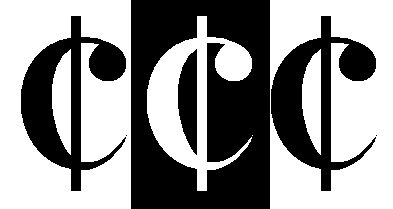Wednesday 19th April 2023: The Arp/Franz Duo
Chichester Chamber Concerts at Champs Hill Music Room
By kind invitation of the Trustees of the Bowerman Charitable Trust
Julian Arp (cello) and Caspar Frantz (piano)
Leoš Janáček : Pohádka [Fairy Tale] (final version) (1910, rev 1912, 1923)
Franz Schubert : Sonata in A minor, D821, ‘Arpeggione’ (1824)
Yosef Suk : Ballade in D minor, Op.3 No. 1 (1890)
Yosef Suk : Serenade in A major, Op.3 No. 2 (1896)
Johannes Brahms : Cello Sonata in E minor, Op.38 (1862-5)
Felix Mendelssohn : a Song without Words arr. cello and piano [encore]
A splendid Duo makes it to Champs Hill at last!
The Arp/Frantz Duo had a hard time of it getting to Champs Hill. Their scheduled appearance in 2021 was cancelled owing to Covid and the they were unable to come in 2022 for family reasons. But patience crowns all and suddenly, the two were there in front of us with a superb programme, the eager audience enraptured in the art-filled music room. The relaxed approach of the pair belied a fearsome technique and highly intelligent programming.
The pairing of Schubert’s ‘Arpeggione’ Sonata and Brahm’s First Cello Sonata revealed the lyrical expansiveness in Brahms learned from the earlier composer, notably Schubert’s habit of wandering far and wide within sonata structures. In Brahms, this deeply romantic lyricism co-exists with, for Brahms, the damoclean presence of Bach and Beethoven, never failing to provide a unique tension. Two attuned Czech works filled out the programme, Yosef Suk’s highly coloured, emotionally charged Ballade, and its accomanying Serenade, anticipating the highly distinctive folk-inflected romanticism of Leoš Janáček’s delightful Pohádka, or Fairy Tale.
Fantasy forms based on folk stories drove much of Janáček’s music, befitting for the Czech romantic tradition. The Fairy Tale was thoroughly revised after its first performance in 1910 but published as late as 1924, in three movements. It has an elaborate programme derived from the epic poem ‘The Tale of Emperor Berendyey’ (1832) by Vasily Zhukovsky. An emperor longs for a child and in the meantime intends to visit his kingdom, with much fanfare at his departure. The first movement is a questioning dialogue between piano and cello, which captures a subtle blend of grief and longing as only Janáček could, his technique essentially a repetition of speech-like phrases, progressively modulated harmonically, articulated as a crescendo of shifting, ultimately ecstatic emotions. The Duo set a slow pace, expressively hushed, in the first movement, the following two, concerning ardent endeavour and panoply, equally engaging.
Schubert’s well-known ‘Arpeggione’ Sonata was written in 1824 for the short-lived arpeggione, a strange hybrid derived from a ‘bowed’ guitar and the viol family. Typically, the highly flexible formal structures combust in sudden switches of mood, covering a great emotional range in this essentially light-hearted, playful work, despite its occasionally dark moments of a Weber-like mystery. The Duo clearly loved this piece, which Julian played from memory.
Josef Suk’s Ballade and Serenade were published as his Op.3 but were written five years apart, the Ballade in 1890 and the Serenade in 1896. In the Ballade, Suk uses extreme piano registers, caught well by Caspar, to heighten emotion in a rather startling anticipation of Janáček.
Brahms’s Cello Sonata in E minor, Op. 38 engaged the composer for three years, a slow movement falling by the wayside, completing it in 1865 when he was thirty-two years-old. The work is clearly a homage to Beethoven, with reference to his Cello Sonatas Op. 69 and Op. 1o2 No. 2—as well as to Bach, the stern fugal finale quoting from Bach’s The Art of Fugue. All the mature Brahmsian traits are here, with a melancholic first movement which barely manages to rise to the light, a soft fanfare-like figure trying but soon fading into the shadows. The Allegretto quasi menuetto is a rather spectral, a fractured waltz with a wan palindromic trio. The robust fugal Allegro attempts to elevate the mood but fades into a sort of semi-benign musing, the initial fugal element brought in characteristically as a coda. The Duo were thoroughly at home in this complex piece, with no passion withheld.
The Duo rounded off a splendid evening with an arrangement of one of Mendelssohn’s more mellifluous Songs Without Words.
Bob Connell
